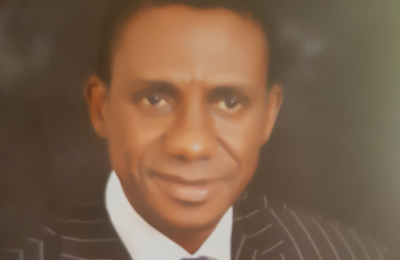The Nigerian legislature is sophisticated just like the business of legislation on the global scenario. As a matter of fact, is it more sophisticated and the legal jurisprudence, like other essential components of law making like research, knowledge sharing, lobbying and constructive, fact-based debating are widening ahead of not a few African countries who share striking similarities and the same political heritage with Nigeria – especially Ghana and South Africa.
To suggest that Nigerian lawmakers are tremendously respected in Africa is to repeat the obvious. In 2009, current Deputy President of the Nigerian Senate, His Excellency, Ike Ekweremadu was elected first Deputy Speaker of the ECOWAS Parliament, a post he held till August 2011 when he emerged speaker of the regional parliament. In 2016, current Deputy Speaker of the Federal House of Representatives, the Rt. Hon. Lasun Yusuf was appointed Deputy Speaker of the ECOWAS parliament – these are in themselves a testimony of how well our law making process has evolved in the last 19 years.
Whereas most Nigerians agree that the 8th Senate is perhaps the most vibrant since 1999, not a few political analysts believe that notwithstanding its effectiveness which may pass as a collective effort of all senators, less than 20% or a mere 38 of incumbent senators are responsible for 100% of the vibrancy. In this class are Senators Enyinna Harcourt Abaribe (Abia), Ike Ekweremadu (Enugu), Dino Melaye (Kogi), Shehu Sani (Kaduna), Kabir Marafa (Zamfara), Oluremi Tinubu (Lagos), Andy Uba (Anambra), Andrew Uchendu (Rivers), Ahmed Lawan (Yobe) Senator Aidoko (Kogi) and a few others.
The list of effective senators responsible for the vibrancy of the 8th Nigerian Senate is long but the unpleasant reality lies in the fact that Kogi East is not on the grid of zones that make up the list. A section of political observers argue that the various legal debacles surrounding the position alongside the legitimacy question of the current occupant of the position may be responsible for the lull. The extent to which this argument is valid can be contested but there appears to be a general consensus that notwithstanding the angle to which the argument swings, Kogi East as a zone has lost immeasurable opportunities.
To achieve a clearer sense of purpose, an arithmetical impression will be employed to quantify the enormity of the loss Kogi East zone has suffered between 2015 and now.
An average federal lawmaker earns about N8.4M per annum as salary only. However, the cost of running the office of one lawmaker alongside other items (estacode, housing, wardrobe, transportation, entertainment, hazard, research, newspaper and other allowances) accumulates to about N300M per annum. If N300M is adopted as standards, it means that a minimum of N1.2B is spent on a senator every four years.
What this suggests from the perspective of a layman is that for any senator to be classified as successful, He or She must within 4 year harness the human capital potentials of His or Her constituents, attract capital projects, create opportunities for individuals to thrive, collaborate with relevant partners towards stimulating development of local communities and contribute to the expansion of the national legislative jurisprudence; all to the tune of at least N2.4B being double the amount spent by tax payers (His constituents inclusive) to maintain His or Her office.
Where this isn’t the case, it is left for pundits to decide if a senatorial zone should be answerable to a senator or a senator accountable to a zone.
For the avoidance of all doubts, an ineffective Senator has an option of retiring permanently after 4 or 8 years in politics and focusing on a luxurious private life with lavish comfort after claiming billions of Naira in personal salaries and allowances, network and contacts, personal career advancement and business opportunities at the instance of His zone. But what happens to the zone that was stagnant throughout His tenure?
Skeletal campaigns ahead of the 2019 elections have commenced and as usual, all is set for an average native of Kogi East to aspire to be the next senator. In advanced societies, the leadership system has evolved. Hence, by default, certain class of persons are prevented from even thinking of joining politics. However, the reality of ours is that it is an all comers affair.
Expectedly, plenty people have joined the contest. among are :
Dr Victor Adoji. Very eloquent and an orator per excellence, he is doing excellently in the banking industry. Young and presentable.
Alhaji Jibrin Isah Echocho. The former governorship candidate of the PDP. A successful banker and a distinction product. Though yet to officially declare, but his relationship with the unpopular government in Kogi State is a serious threat to his ambition.
Comrade Amade Edimeh. Very young and articulate, vibrant and well known in the community of comradeship. Edimeh a younger brother of Dr Isah Edimeh who once vied for the House of Representatives Dekina/Bassa Federal Constituency.
Having interacted with hundreds of youth and other interests from Kogi East, I can conclude that within the context of our local politics, the most important yardstick for selecting our next class of federal lawmakers are about the most shocking and surprising in Nigeria.
They include their street sagacity, history of philanthropy and accessibility to everyone. If nothing else, this is a clear signal that we have a culture of very low expectations. Ironically, young people who hold the ace to the future, read about and dream of benefiting from the recent kind of power shifts which happened in France, Sweden and Portugal are the staunchest advocates of this kind of politics.
In as much as I believe that individuals are reserved the rights to create standards and support their preferred candidates, I disagree that street credibility, a history of philanthropy and unnecessary accessibility are the most important standards with which the capacity of an individual who aspires to represent Kogi East in the Senate should be measured and this is because it is only logical that following the evolvement of our legislature, only individuals who can cope with the rigours and competitive demands of law making and other oversight duties should be supported to represent our people in senate.
For the purpose of creating a new narrative in Kogi East Senatorial Zone ahead of the forthcoming general elections, here are a few of my thoughts about the most important attributes an average aspirant must possess:
The main reason political parties are formed is for the purpose of contesting and winning elections. Individuals on the other hand contest elections for the sole purpose of winning before anything else. This is perhaps the only unifying factor in politics. Everything else is variable including what persons who win elections intend to do with political power after emerging. Whereas some desire to serve, others see it as an avenue to make new contacts for business purposes. While some plan to use political power for revenge against perceived foes, others just want to hold on to power for pecuniary benefits.
It is now left for the people of Kogi East as participants in the political process to unravel the fundamental reason behind the aspiration of an individual. This can be achieved by asking very hard questions and refusing to accept or be impressed by generic answers and blanket assurances devoid of facts and figures. Where individual senatorial aspirants cannot provide specific definitions of their mission in the Senate and their vision for the people of Kogi East, it is only a huge pointer which clearly indicates that such individuals are professional bench warmers who will only draw huge salaries and disappear at the end of their tenure.
Planning is an important factor in governance which distinguishes Nigeria from (say) Germany. Political theorists recognize this hence the popular saying that suggest that “they plan to fail that fail to plan”. This is a simple reality which must not be overlooked as the people of Kogi East head to the polls once again to elect for themselves a senator. Aspirants must be able to clearly enumerate their action plans and set them before the public in an unambiguous manner. It is laughable that some aspirants still run on the lucid platforms and ideologies of “EFFECTIVE REPRESENTATION” or “QUALITY LEGISLATION” which as far as I am concerned are neither here nor there.
How exactly can “EFFECTIVE REPRESENTATION” or “QUALITY LEGISLATION” be measured in terms of impact on voters? While it may be argued that the core duties of a lawmaker is to make laws, I am led to wonder if lawmakers who make laws and at the same time attract multi billion Naira projects to their zones are not Nigerians.
If a law maker like Hon. Jibrin Abdulmumin can influence items worth over N3B into a single budget for his federal constituency, why should an individual aspiring to represent Kogi East in senate not have a defined plan detailing what is to be expected within a period of 4 years?
Politics is business not gamble where returns are subject to a lot of variables. Senators are usually not owed salaries or allowances in Nigeria. If this is a fact, why should a senatorial zone be in the dark as to what benefits it will derive from a Senator?
From a psychological perspective, it is often suggested that attitude and capacity is everything. On this basis, I believe that an aspirant who desires to represent Kogi East in the Nigerian Senate must leave no one in doubt about His or Her capacity as a competitive figure. This is mainly because the entire concept of the legislature within the Nigerian concept has deepened. This has further made it about the most competitive arm of government where issues are considered only on the strength of merit. Lobbying is key therefore, the question of capacity cannot be wished away.
Is an aspirant from Kogi East (on the assumption that He or She emerges) capable of persuading His contemporary from Lagos Central to shelve an idea so another idea may be considered? Is an aspirant from Kogi East (on the assumption that He or She emerges) strike an issue based conversation on the floor of the hallowed chambers in a manner that will compel 108 senators to perceive a matter from a different perspective? These are about the biggest tests of the suitability of an average aspirant.
Where an aspirant insists on being capable, can His or Her capacity be verified on the strength of precedence either in public service or organised private sector?
I am passionate about good governance. It is my desire that we graduate Kogi East senatorial zone from its current position to a level that is commensurate with the human capacity and resources domiciled in our zone. We are a zone which has given so much to the development of the old Benue State – comprising current Benue and Kogi States. We therefore cannot remain in the trenches.
I believe the key to the political emancipation of our people is in our hands and as a people, we must resolve to utilize that key in the best interest of Kogi East.
Going forward, I believe that while no individual right to aspire should be disregarded, posterity will remember us for identifying with only the best.
The business of law making is a very sensitive one.
Consequently only our best should feature.
– Usman Okai Austin, convener, Kogi Youth Round Table, writes from Abuja.




